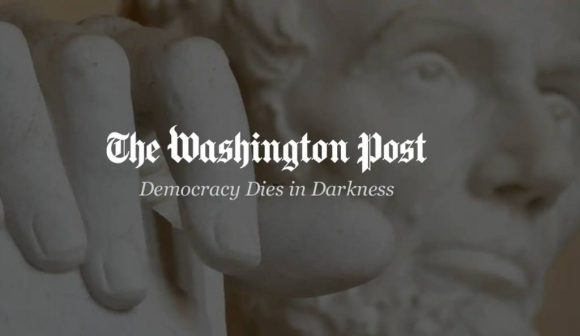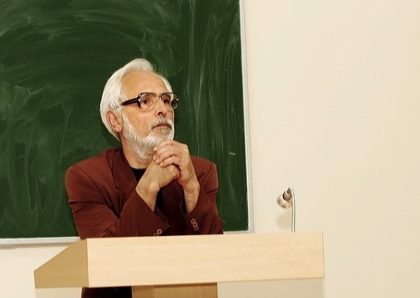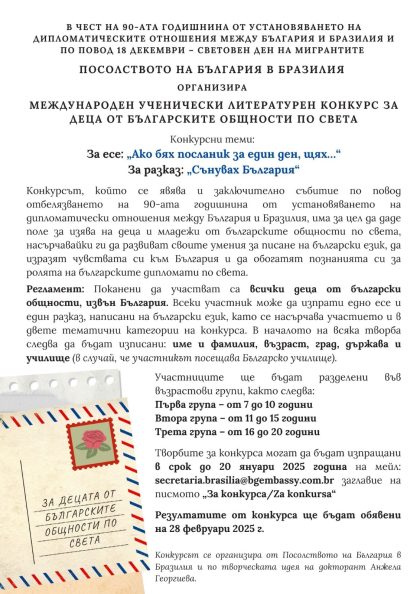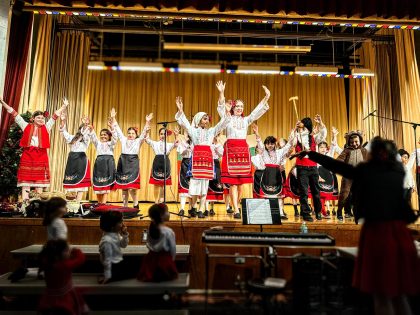Does voting still need to be secret? Make voters stand up for their choices.
By Yoav Fromer* (The Washington Post)
Congress will meet today to certify the electoral college vote, officially marking Donald Trump as the president-elect even though Hillary Clinton won 2.8 million more votes than he did on Election Day.
With such a disparity, it’s no surprise that many people are calling for amending — even abolishing — the electoral college. When it comes to electoral reforms, though, we shouldn’t stop there. Yes, the electoral college is antiquated, but there is another electoral anomaly that we have come to take for granted that may have also outlived its usefulness: the secret ballot.
Possibly the most famous Australian export ever, the right to vote in private without having to reveal your choice to anyone, was gradually implemented in the U.S. state-by-state, starting in Massachusetts in 1888. The secret ballot has undoubtedly helped buttress American democracy, helping get rid of the corruption, intimidation and even violence that were once endemic to the electoral process. By granting anonymity to voters, it gradually curtailed the corrosive influence and arm-twisting of local political machines, like New York City’s notorious Tammany Hall, and helped obviate intimidation before heading to the polls and potential retaliation when returning from them.
But things have changed. And the very arguments that were so compelling in the late nineteenth century in favor of the secret ballot are beginning to appear outdated, even counterproductive, today. Given the sweeping demographic changes, technological innovations, economic reorganization and political centralization that have transformed America in recent decades, it might be time to rethink the way we vote and consider removing the sacred veil of secrecy that has cloaked our voting booths for so long.
* * *
The biggest change in the voting process has to do with the character of voters themselves: The secret ballot came into use a few decades after universal suffrage was instituted and just as the United States was opening its gates to an unprecedented wave of immigration, primarily from southern and Eastern Europe. Many voters were not only illiterate and uneducated but also came from authoritarian homelands bereft of, and hostile to, the civic virtues an open democratic society relies on. Motivated primarily by family, communal and ethnic bonds, many of the new immigrants — to the horror of progressive reformers — often voted en masse for whomever party bosses told them to. The secret ballot was meant to break this dependency.
U.S. elections are a mess, even though there’s no evidence this one was hacked
While apathy and ignorance still suffuse American political culture, voters today are highly literate and instilled with a basic civic education. Most of them are relatively more educated, better informed, have greater access to information and are more likely to resist social conformity — or refrain from insisting upon it — when voting. Intermarriage across ethnic lines, secularization and the overall weakening of family structures further undermined traditional adhesives that used to bind groups of urban voters like the Irish, Jews and Italians to local political machines. The erosion of these informal social networks and exhaustion of communal incentives to coordinate voting indirectly helped achieve, over time, much of what the secret ballot initially set out to do in the first place.
Voters today are also less vulnerable. The secret ballot was implemented at the height of the Gilded Age, when egregious class division plagued America: Lacking any basic legal safeguards for their employment — or a social safety net to assist them in case they lost it — millions of workers were beholden to their bosses and landlords’ interests and lacked protection from reprisals if they voted against their wishes. Today’s workplace is far less hostile: Natural social mobility bred a broad and independent middle class. And progressive era reforms and the New Deal established pioneering labor laws that safeguarded workers rights, provided for Social Security and unemployment benefits and founded powerful regulatory institutions such as the National Labor Relations Board that afforded workers legal protections against unlawful termination — such as the kind they might have experienced for voting the “wrong” way. Urban political machines also lost sway as they lost power, thanks to civil service reform and the growth of the federal government, which shifted resources from the local to the national level.
Many of the ailments that the secret ballot was initially prescribed to treat have become almost moot. The use of bribery, for instance, to impact election outcomes seem futile given the utter failure of campaign finance reform and the Citizens United Supreme Court decision. Since the law already allows wealthy donors to funnel cash to super-PACs on a national level to persuade voters, there’s no need to spend the money or risk getting caught bribing voters one by one the way the old machines used to.
And the very anonymity provided by the secret ballot has become in many ways symbolic: Voting registration lists are, after all, a matter of public record. The increasing digitalization of such records and of political donations essentially means that in many states all you need are a few clicks to find out with which party someone is registered and to which candidate they donated money. Given the high correlation between ideology and party today, chances are pretty slim that a registered Democrat routinely votes Republican or vice versa. And in case there is any doubt left, a glimpse of social media profiles will surely give you away: If someone follows Rush Limbaugh or Rachel Maddow on Twitter and posts “like” for Fox News or MSNBC on Facebook, you could probably guess whom they voted for.
* * *
While the benefits of the secret ballot seem increasingly paltry, the new dangers that it poses may have begun to outweigh its merits. One of the most alarming things about the recent elections is the fact that a large number of voters apparently lied, not only to pollsters but to their families and friends, about supporting Trump. “I personally know many Republicans that won’t admit that they are voting for Trump. I don’t like admitting it myself,” one Virginian told Politico. Even the Trump campaign conceded that “undercover voters” ultimately helped deliver him the stunning upset. Given that some of what Trump said during or before the campaign was so racist, xenophobic and misogynist, naturally voters might not want to be associated with it. The secret ballot provided them the luxury of voting for him anyway.
Rigging an election is almost impossible
Many voters made their choices with incorrect information, too. According to a shocking PPP study of the recent elections, 40 percent of Trump voters believe that he won the popular vote (he lost by more than 2 percentage points); 67 percent of Trump voters say that unemployment increased under the Obama administration (it fell sharply from 7.8 percent to 4.6 percent); 39 percent of Trump voters say that the stock market went down during the Obama administration (the Dow Jones industrial average spiked to unprecedented levels, nearing 20,000 for the first time in history). The anonymity provided by the Internet allowed people to spread and consume such lies; the anonymity provided in the ballot box allowed them to act on them. At no point were voters challenged on any moral, intellectual or even rational grounds to defend their choices.
In democratic Athens, the citizens raised their hands to vote; in Rome, they often voted orally; in colonial America, they adopted many of these same methods while also practicing more creative ones. (In Pennsylvania, for instance, they tossed beans into a hat.) Voicing your opinion publicly was, until the advent of the secret ballot, an integral and natural part of political life. Visibility led to accountability, and everyone knew where you stood on the issues, if only because you often had to actually stand behind them. If a candidate acts in indefensible ways — and one must recall that throughout the campaign even the GOP leadership often refused to defend Trump — it is the voters who ultimately bear responsibility for defending him. The secret ballot allowed many of them to get away with never having to do so.
In the long term, only a more educated and critical public can combat fake news and excise this infection from the body politic. But in the short term the way to neutralize it might be by forcing it out into the open and suspending the secret ballot, at least temporarily. If someone is willing, for whatever reasons, to base their vote on unsubstantiated — and often baseless, ludicrous and delusional — reports such as those claiming that the pope endorsed Trump, that Hillary Clinton sold weapons to the Islamic State or that an FBI agent who was supposedly involved in the Clinton email investigation was found dead in a murder-suicide, that is certainly their right as voters. But they must also be forced to own up to their choice in public. That is still their responsibility as citizens.
–––––––––––––––––––––––––––––
*Yoav Fromer is the Director of the Center for the Study of the United States in Partnership with the Fulbright Program at Tel Aviv University. His new book, „The Moderate Imagination: The Political Thought of John Updike and the Decline of New Deal Liberalism“ is forthcoming.
For more info see The Washington Post at Jan. 6, 2017 (link)
‘







